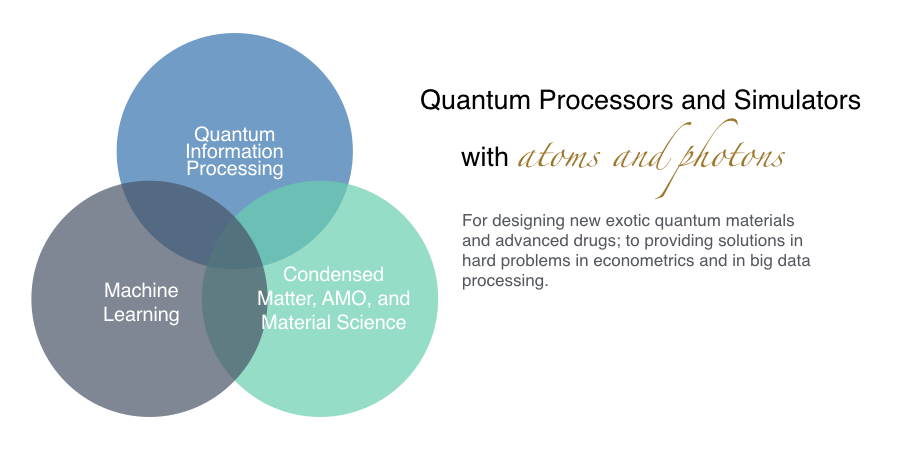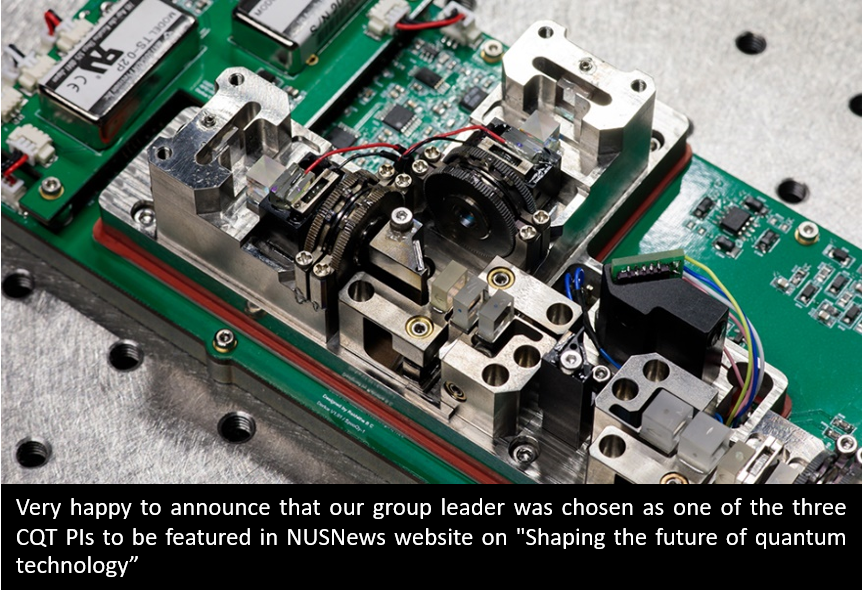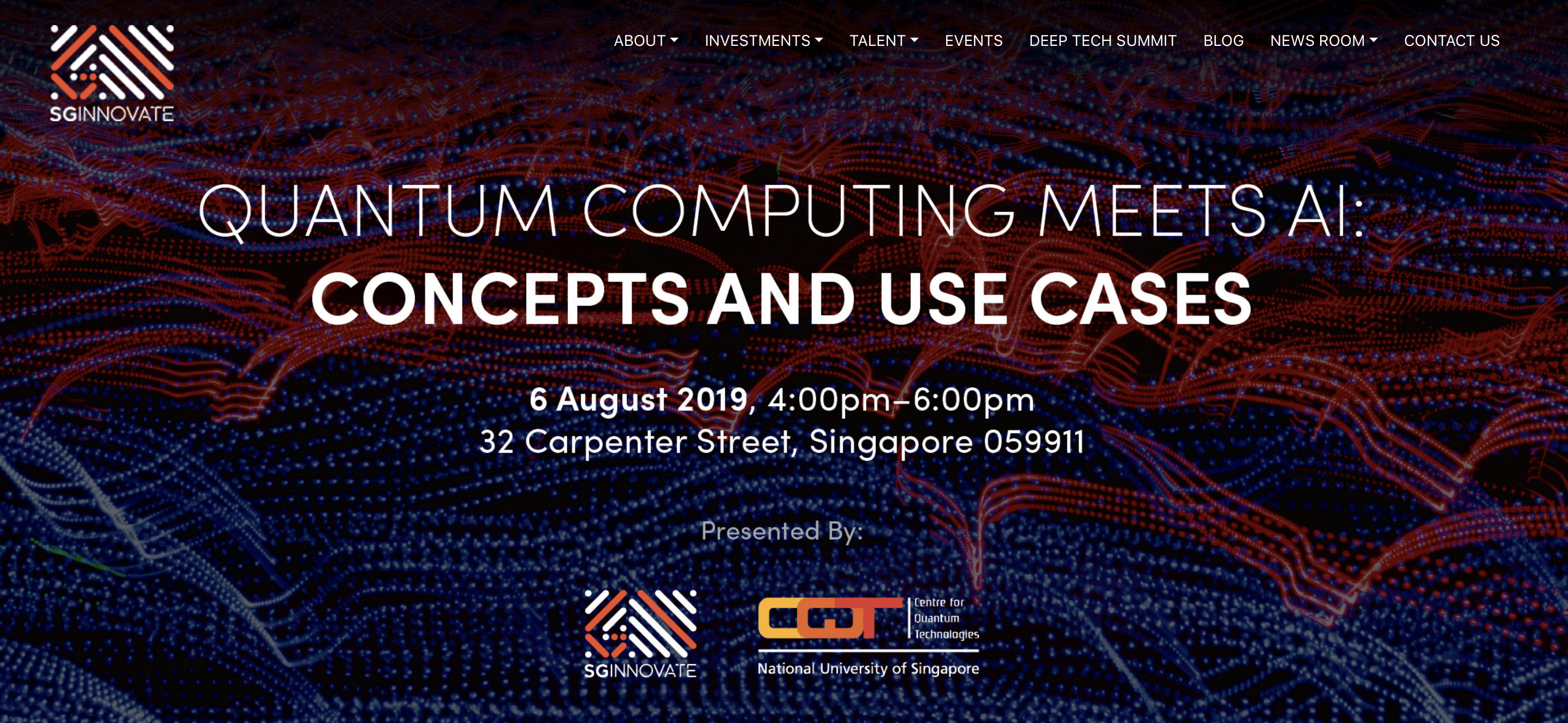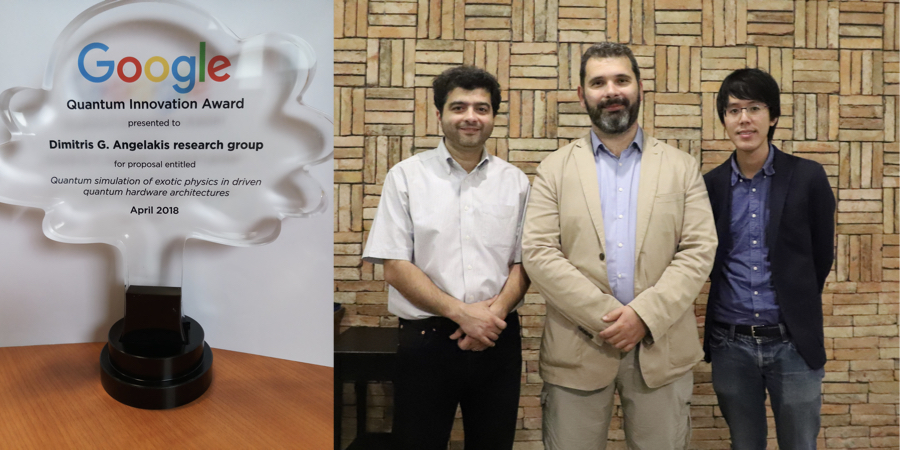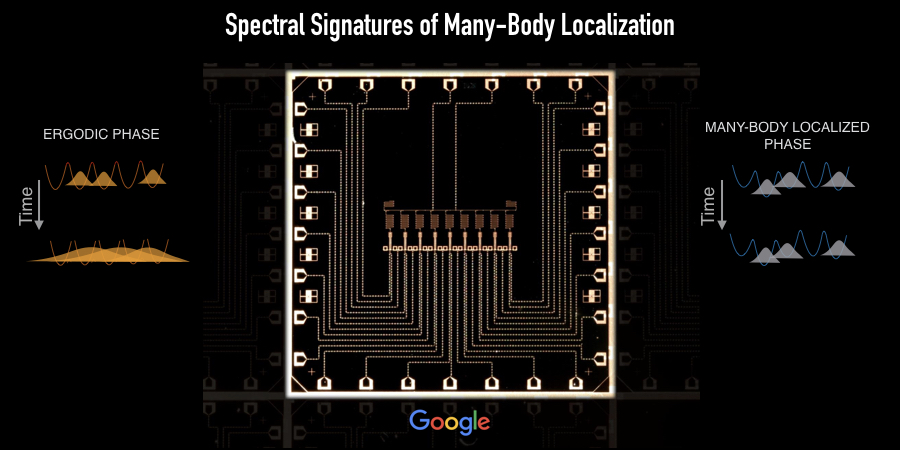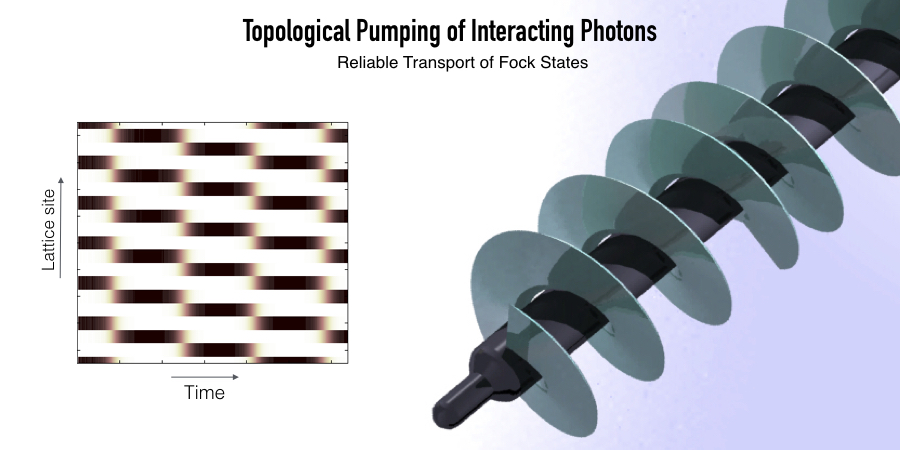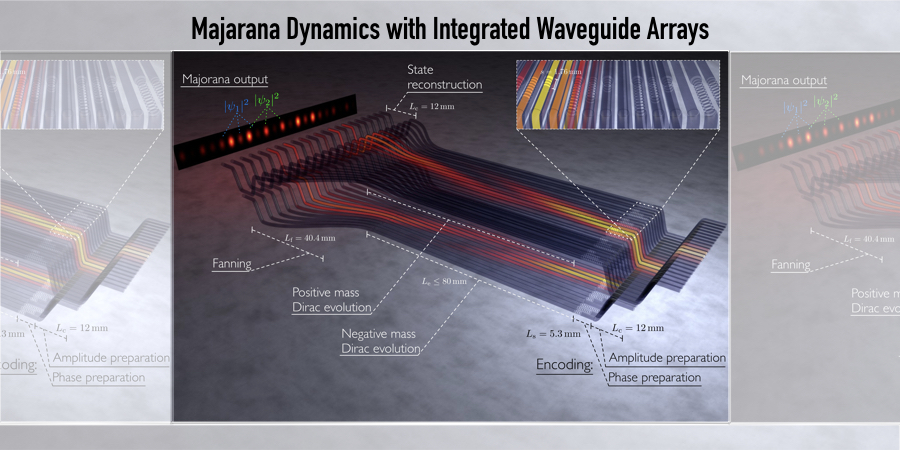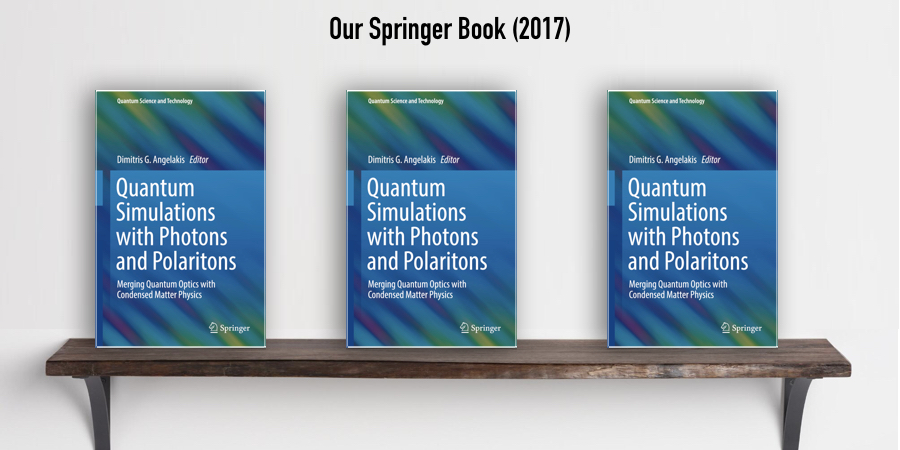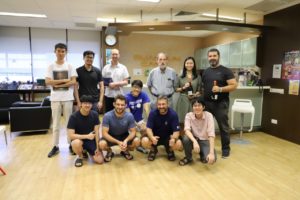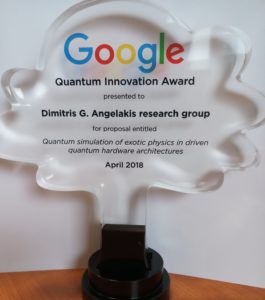Welcome to our group website
We are working in quantum technologies with a focus in implementations of quantum computation and quantum simulation with quantum optical systems. Our research could be applied towards developing exotic high-performance quantum processors and simulators, and also for fundamental science in the area of strongly correlated quantum systems. read more.
August 2024: We are excited to share the publication of our latest work building up on our qubit compression algorithms for solving QUBO problems and applications in finance! Using our unique quantum encodings, we solve the transaction settlement problem and managed to boost the performance by almost two orders of magnitude compared to the state of the art! Many congratulations to past research assistant Elias, past PhD student Benjamin, collaborator Paul Griffin from SMU and the SGX Group folks for providing the use case and the relevant data. Read more about our work on the CQT highlight piece!
May 2024: Another new work was recently put out onto the arXiv by our PhD student Chee and collaborators. In this work, we integrate concepts based on the classical combination of quantum states into existing fault-tolerant algorithms for Hamiltonian simulation. Our proposed hybrid simulator features no optimization subroutines and avoids barren plateau issues, while consuming fewer quantum resources compared to standard methods when many time steps are required.
March 2024: We are excited to share our latest paper on “Nonlinear Quantum Dynamics in Superconducting NISQ Processors”, a collaborative effort by postdoc Muhammad and others from the Technical University of Crete. We tackle the ground state problem of the nonlinear Schrödinger equation and gain insights into the practical implementation and robustness of QCFD algorithms against hardware-induced noise.
April 2024: Check out our recent paper published to Advanced Quantum Technologies, part of our QEP project in collaboration with ExxonMobil! Using our unique qubit compression quantum optimization algorithms, we solve a route optimization problem, for instances ranging from 11 to 3964 routes constructed with data provided by researchers from ExxonMobil. State of the art so far was maximum 20-30 routes!
Jan 2024: Another new work was recently put out onto the arXiv by our PhD student Harvey, who shows how dimensionality reduction techniques from machine learning can be used to distinguish between thermal and non-thermal phases in quantum many-body scar systems!
July 2023: A new work from our research assistant Elias building up on our qubit compression algorithms for solving QUBO problems and applications in finance. We solve the transaction settlement problem and boost the performance by almost two orders of magnitude compared to the state of the art!
Research Highlights

December 2024: Efficient Estimation and Sequential Optimization of Cost Functions in Variational Quantum Algorithms
Efficient Estimation and Sequential Optimization of Cost Functions in Variational Quantum Algorithms Muhammad Umer, Eleftherios Mastorakis, Dimitris G. Angelakis arXiv:2412.20972 …

February 2024: Unsupervised learning of quantum many-body scars using intrinsic dimension
Unsupervised learning of quantum many-body scars using intrinsic dimension Harvey Cao, Dimitris G. Angelakis, Daniel Leykam Harvey Cao et al …
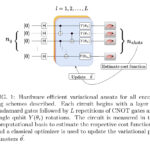
June 2023: Qubit efficient quantum algorithms for the vehicle routing problem on quantum computers of the NISQ era
Qubit efficient quantum algorithms for the vehicle routing problem on quantum computers of the NISQ era Ioannis D. Leonidas, Alexander …
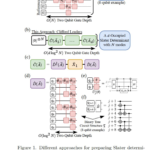
Jan 2023: Shallow quantum circuits for efficient preparation of Slater determinants and correlated states on a quantum computer
Shallow quantum circuits for efficient preparation of Slater determinants and correlated states on a quantum computer Chong Hian Chee, Daniel …
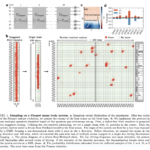
October 2022: Efficiently Extracting Multi-Point Correlations of a Floquet Thermalized System
Efficiently Extracting Multi-Point Correlations of a Floquet Thermalized System Yong-Guang Zheng, Wei-Yong Zhang, Ying-Chao Shen, An Luo, Ying Liu, Ming-Gen …
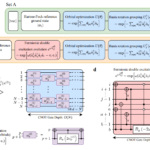
July 2022: Computing Electronic Correlation Energies using Linear Depth Quantum Circuits
Computing Electronic Correlation Energies using Linear Depth Quantum Circuits Chong Hian Chee, Adrian M. Mak, Daniel Leykam, Panagiotis Kl Barkoutsos, …
